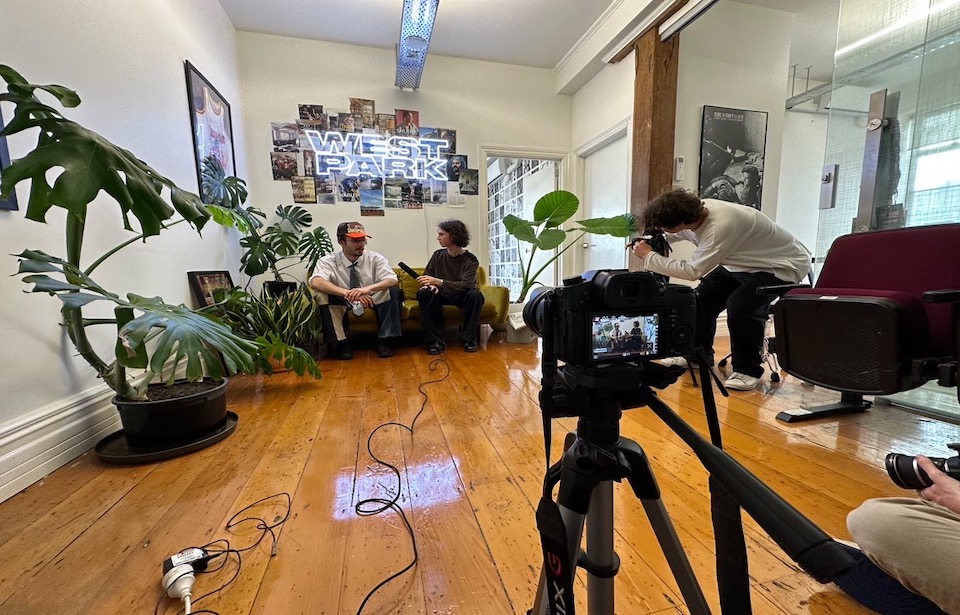Giving journalism a ‘face-lift’ in a time of crisis
• June 4, 2024

The Department of Information members, an independent media outlet that produces journalism on social media. Photo supplied by Louis Macalister.
As major legacy news networks in New Zealand restructure - or even close - independent outlets are emerging that are pushing the boundaries of what defines traditional journalism.
New Zealand veteran journalist and former editor Finlay Macdonald says these outlets are what journalism requires to survive, as well as adapt to our changing world.
“Smaller independent outlets can actually challenge the status quo, they can push the boundaries of what is thought of as journalism and the parameters journalism can cover.”
The Department of Information is one such budding independent outlet, helping the scope of journalism evolve in New Zealand.

Macdonald says that such networks bring a factor of irony to journalism often missing from mainstream media.
“The advantage of the independent operators is that they can take the piss, be a bit tongue in cheek.
“They're more aware of the of the kind of media, they're just more aware of how the media works, they don't insult the intelligence of their audience.
“And they know that their audience gets it too. So everyone's a little on the joke.”
The Department of Information co-founder Louis Macalister said that the start of their media network resulted from a talk John Campbell had with them while working for 95b FM.
“He was talking about how journalism is like university-educated people talking to other university-educated people.
“About stuff that is not directly concerning them and that if you want to do good stuff, go talk to people.”
It focuses on producing content that covers topics that don’t get publicity through mainstream news outlets as the illegal ‘drag race’ scene and the dirt bike ‘bike life’ phenomenon.
And this is attracting audiences that would usually be opposed to the content produced by New Zealand’s mainstream news sources
Macdonald says that these emerging independent journalists are refreshing because they ensure their journalism keeps up with their audiences.
“Whereas a lot of mainstream, does sensationalise, does trivialise, it does look for scandal and conflict, when it doesn’t have to.
“And it can be very superficial as a result.”

Louis Macalister says that the reason The Department of Information exists is because they wanted to meet interesting people and share their unique stories with the world.
“It’s interesting, for us personally there are not many opportunities to talk to some of these people and spend a few days with them, it’s enriching.”
Currently, it's a creative pursuit for them as they only produce content in their spare time.
To help fundraise to produce future content they are screening a documentary in Auckland on the 18th of June.
Listen here to Finlay Macdonald explain how he thinks journalism should evolve for it to survive the current media crisis.
The Department of Information meet with members of the “Bike Life” syndicate in Huntly.





